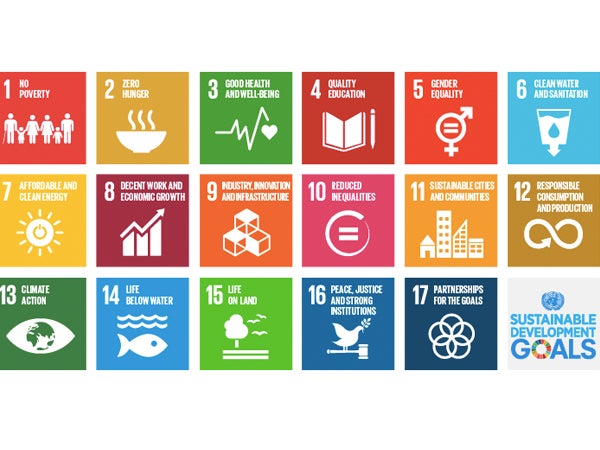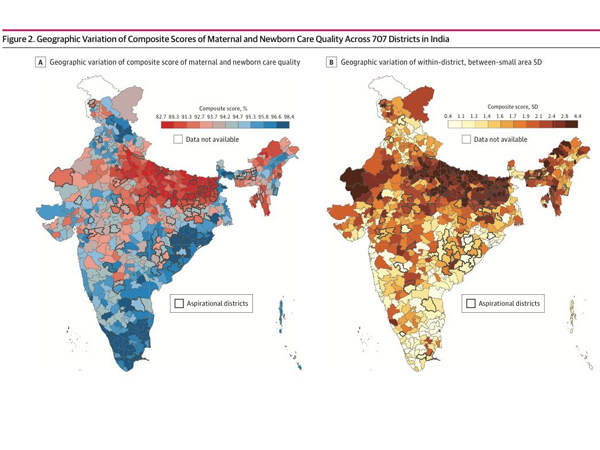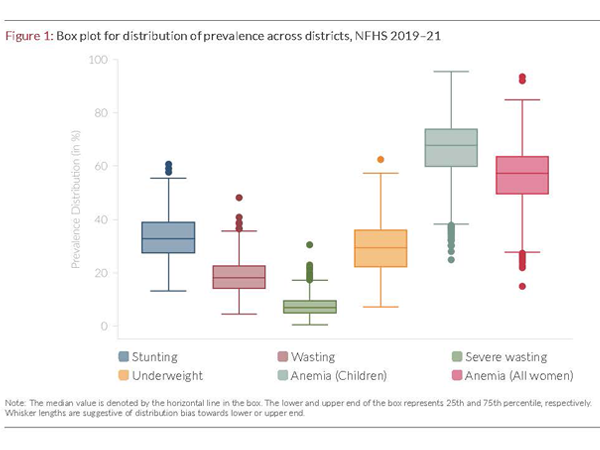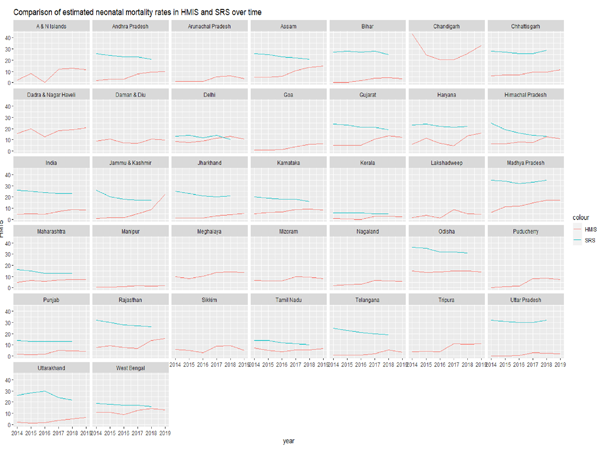Former Harvard postdoctoral fellows Adam Lippert, Dan Corsi, and Rockli Kim, along with faculty member S (Subu) V Subramanian, and their colleagues have published a study in Nicotine and Tobacco Research that is one of few studies to assess cumulative genetic contributions to nicotine use and cardiometabolic health during early mid-life alongside socioeconomic and lifestyle factors.
“Climate change is poised to have enduring and far-reaching consequences on the Sustainable Development Goals related to health”
S (Subu) V Subramanian explains in this piece in Mongabay-India how climate change has a negative impact on India’s progress in achieving the United Nation’s Sustainable Development Goals by 2030. A study led by Subramanian that was published in The Lancet Regional Health Southeast Asia earlier this year that assessed India’s progress in meeting these goals is also cited in this article.
Winter 2023 Harvard Public Health Magazine cites work by Berkman/Truesdale and Subramanian/Kim
In the current issue of Harvard Public Health Magazine, Harvard Pop Center research projects (and researchers) are getting some attention. The book “Overtime: America’s Aging Workforce and the Future of Working Longer” co-edited by HCPDS Director Lisa Berkman and Visiting Scientist Beth C. Truesdale is spotlighted in the “Bookshelf” section, and novel research by Faculty Member S (Subu) V Subramanian and Visiting Scientist Rockli Kim that mapped undernutrition across India’s…
Harvard Chan School reports: “Study highlights inequalities in early childhood vaccination in India”
A study published in JAMA Open Network by Harvard Pop Center faculty member S (Subu) V Subramanian, PhD, visiting scientist Rockli Kim, and their colleagues reveals a pattern of vaccination rates among children (ages 12-23 months) in India; despite efforts to achieve increased vaccination rates nationally, the number of children in certain regions and states in India who did not receive routine vaccinations (first dose of the diphtheria-tetanus-pertussis (DTP) vaccine)…
India Policy Insights investigates variation in the quality of maternal and newborn care between smaller areas within districts in India
Researchers affiliated with the India Policy Insights initiative have published the findings of a cross-sectional study in JAMA Network Open that reports there being more variation in maternal and newborn care quality (measured by 11 individual components of care) in smaller, “within-district” geographic areas compared to the district- and state-level, suggesting that “policy around maternal and child health care needs to be designed more precisely to consider district mean and…
India Policy Insights announces the first-ever interactive policy dashboard for India’s 543 Parliamentary Constituencies
India Policy Insights (IPI), the flagship project of the Geographic Insights Lab at the Harvard Center for Population and Development Studies, has developed a first-ever interactive policy dashboard for India’s 543 Parliamentary Constituencies (PCs). This public interactive tool provides health, nutrition, and development data that specifically aligns with the political units represented by India’s democratically elected Members of Parliament (MPs), who are responsible for overseeing effective policy implementation for their…
New policy brief series by India Policy Insights team delivers concise analysis of key performance indictors for five national programs sponsored by Indian government
The government of India has invested in programmes to help the states and districts achieve performance goals set to address everything from health issues (such as reducing anemia, stunting and low birth weight) to issues around gender inequity and women’s empowerment through education. But how can it be determined if India’s districts are achieving these goals? Now, a new policy brief series produced by India Policy Insight‘s team helps shed…
Can India’s Health Information Management System (HMIS) data be relied upon for estimates of population-level birth and child mortality rates?
This study is one of the first to compare facility-based, administrative health data on births and child deaths to birth and death vital statistics from the more commonly relied upon nationally representative surveys, such as the Sample Registration System and the National Family Health System, at national and state levels over a four-year period. Although the study authors (including Pritha Chatterjee, Harvard Bell Fellow Aashish Gupta, and HCPDS faculty member…
JAMA study findings call for more targeted interventions in LMICS for malnutrition and infections for children under age 2, as well as for pregnant women
An original investigation of 77 low- and middle-income countries (LMICs) published in JAMA Network found that 82% of under 5 child deaths occurred before age 2, with over half occurring in the neonatal period. Authors include faculty member S (Subu) V Subramanian, visiting scientist Rockli Kim, and their colleagues Omar Karlsson and Andreas Hasman. The study also spotlights diarrhea and pneumonia as two significant causes for child death over 2…
International Money Fund: Are the tradeoffs fair and acceptable when it comes to population health?
A study published in World Development by three researchers affiliated with the Harvard Pop Center (former Bell Fellow Adel Daoud, faculty member S V Subramanian, and the 2017 recipient of the Sissela Bok Ethics and Population Research Prize Anders Herlitz, reviews already existing policy-evaluation studies, finding that International Monetary Fund (IMF) policies “on balance show that IMF policies, in their pursuit of macroeconomic improvement, frequently produce adverse effects on children’s…







